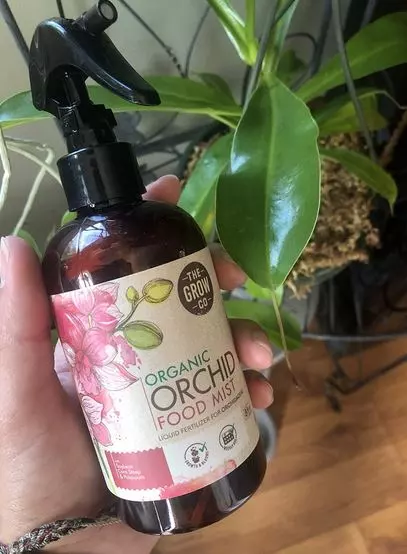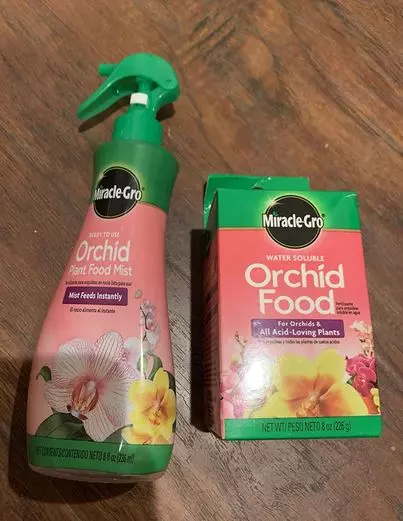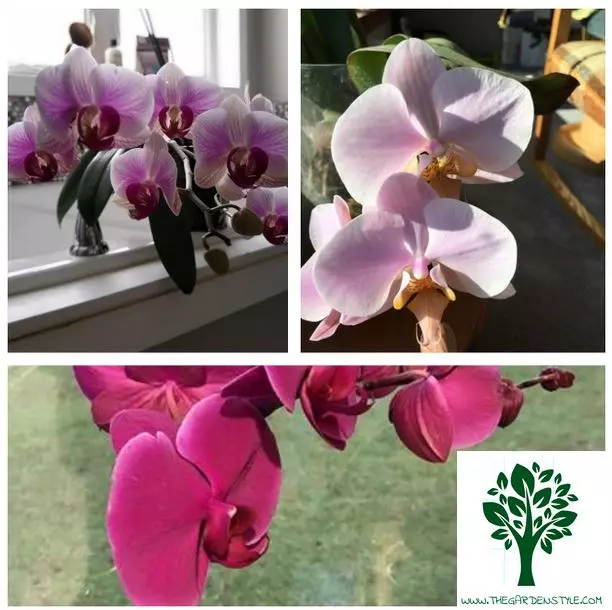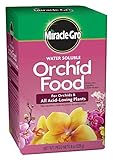In this article, we will explain how to fertilize orchids correctly. Most people believe that fertilizer is some kind of miracle product with the ability to save and revive the worst orchid we can find. The reality is different. If the orchid is in a very bad condition, compost or fertilizer will not be the solution. Fertilizer is an aid for an orchid in good condition, which will give it a plus of vitality and health.
Table of Contents
Why Do Orchids Need Fertilizer?
When an orchid leaves its natural habitat, we are taking away the orchid fertilizer it collects from nature. Substrates such as spruce bark, moss, cork, gravel, or other products with which orchids are grown commercially, lack many essential nutrients for these plants.
Because of this, regular fertilization is desirable and necessary to provide the essential nutrients needed by the orchid to maintain good health and bloom.
Which Orchid Fertilizer to Use?
In the stores, we can find an infinity of fertilizers for our orchids. If you are looking for orchid fertilizer, choosing one can be a difficult task. You will probably hear a lot of opinions about fertilizers.
Fortunately, choosing a good orchid fertilizer is not as complicated as it may seem. You will indeed find many manufacturers, but the important thing is to pay attention to the indications of each one of them.
Here are some tips for choosing a good fertilizer for orchids:
- Look carefully at the package directions, and choose a fertilizer that contains nitrate nitrogen. Recent research has shown that it is a good product to fertilize your orchid. On the other hand, a fertilizer containing urea is not the most suitable.
- Look for a fertilizer containing at most 20% nitrogen. Higher amounts can be counterproductive. If you give your orchid too many nutrients, this can have a negative effect.
- The amount of phosphorus does not determine whether the fertilizer is better or worse. There was a time when it was thought that a very high level of phosphorus was advisable. But over time it has been shown that the level of phosphorus does not matter so much to fertilize correctly.
- In many situations, a calcium and magnesium fertilizer can be a plus to help the orchid grow and bloom properly.
By following the requirements we have indicated, you will be able to fertilize your orchid correctly. However, you have to keep in mind that you have to make the mixture correctly. You will find this on the label of the fertilizer container for each type or genus of orchid.
Important Note: Do not use processed tap water to fertilize your orchids. It is always best to use rainwater or distilled water.

Best Fertilizers for Orchids
As we mentioned before, choosing a fertilizer for orchids can be a bit complicated, if you do not get the right fertilizer for orchids in your nursery or nearest store, we recommend the ones we currently use in our orchids with excellent results.
Always remember to use rainwater or distilled water to water your orchids.
You should see in this article about Orchid Leaves Turning Yellow how we use the fertilizer we recommend.

How to Fertilize Orchids
It is usually done by diluting the fertilizer with rainwater or distilled water. Some types of fertilizers are applied directly to the orchid leaves.
This difference can be divided into two sections:
Root supply fertilizers: This type of fertilizer is used with water and is absorbed by the roots.
Foliar fertilizer: This type of fertilizer is used directly on the leaves, and is absorbed by the stomata of the leaves.
When you wonder how to fertilize orchids and which method to choose, you don’t have to think too much about it. Both one option and the other are valid.
Fertilize Orchids: Tips and Advice
Fertilizing an orchid is not complicated, but it is always convenient to follow some tips that we are going to give you below on how to fertilize orchids:
1- It is better to fertilize more frequently with a more diluted concentration than to fertilize less frequently with a less diluted concentration.
2- Follow the manufacturer’s instructions and do not add more fertilizer than necessary.
3- Dark green and very weak orchid leaves may indicate over-fertilization.
4- This is a good time to fertilize orchids during their growth process.
5- If for some reason, your orchid has become sick, stop fertilizing and look for other solutions.
Natural and Homemade Orchid Fertilizer
You can create your natural fertilizer for orchids in a very simple way. These are homemade recipes that you can make at home with little effort.
Eggshells. The eggshells that we throw away are a good element to provide calcium to our orchids. To use them is very simple. First of all, you have to wash them and after that let them dry. Once they are dry, we have to grind the shells as much as we can, until we get practically powder. As the result, we will put it on the roots of the orchid and it will be a good help.
The water leftover from cooking the potatoes is a good source of calcium and potassium. At the same time, the water leftover from boiling rice contains a lot of vitamin B. Both will make excellent water for watering orchids. You can store them in the refrigerator to preserve them.
When to Fertilize Orchids?
If you are thinking about how often to fertilize orchids, there are several things to keep in mind. Studies agree with the majority of opinions of orchid specialists. As a general rule, the frequency of fertilizing orchids is once every two weeks. Once in bloom, it is sufficient to fertilize the orchid once a month.
The recommended dosage is usually 20-20-20. That is nitrogen, phosphorus, and potassium in equal parts.
When you are going to fertilize, you have to be careful not to pour the fertilizer directly on the leaves or flowers. Use a utensil with which you can pour the fertilizer directly into the container.
We hope this article on how to fertilize orchids will be useful to have the most beautiful flowers in your home.






